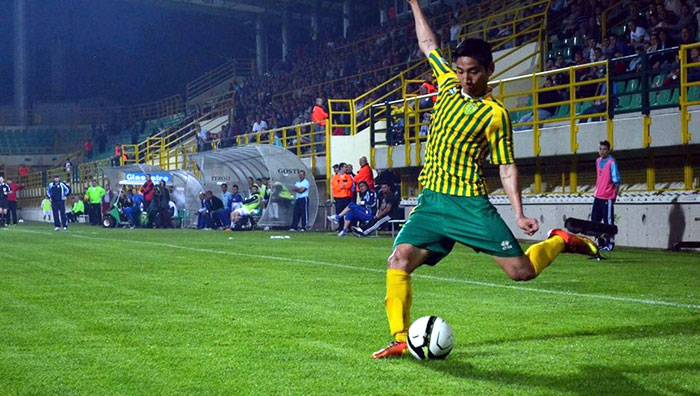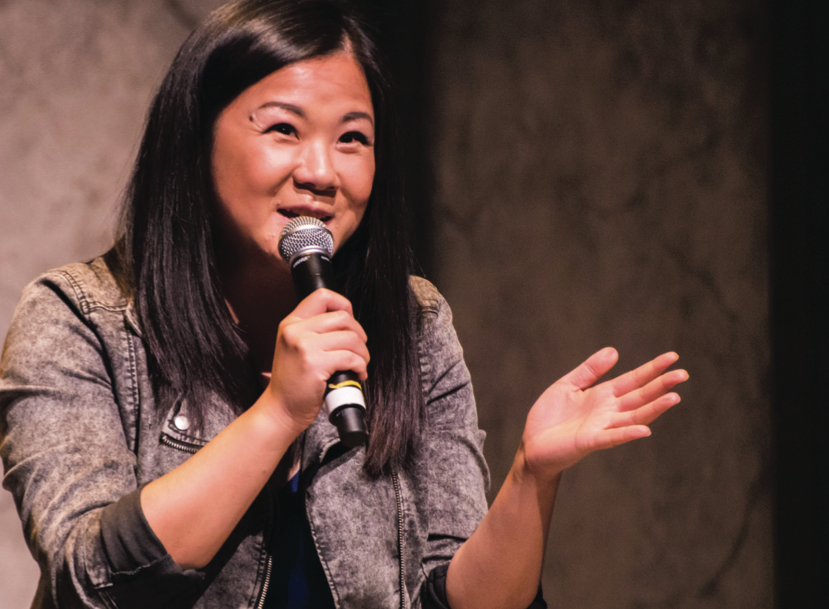by STEVE HAN | @steve_han
editor@charactermedia.com
In the past, South Korea sought granting citizenship to imported foreign players to imported foreign players in order to improve its national soccer team. However, due to Korea’s strong sense of ethnic nationalism, the country opted not to naturalize these foreign athletes each time it faced overwhelming public opposition.
In the case of Korean soccer player Chung Woon, the tables have turned.
Croatia, a country with a national soccer team that is ranked 19th in the world (Korea is ranked 69th) by FIFA, is currently attempting to naturalize Chung after the 25-year-old’s impressive two-year stint in its top-flight professional soccer league.
“Croatia’s soccer federation made an offer to Chung to obtain citizenship,” said the player’s agent, Lee Gyeong-won, according to South Korean newspaper Ilgan Sports. “Talks have already taken place to make Chung a member of the Croatian national team. Discussions are already 90 percent complete.”
If the naturalization is processed, Chung would become the first South Korean national to represent a country aside from his birthplace in international soccer.
With Croatia vying for its fourth consecutive qualification for the 2016 European Championship, the country’s soccer federation president Davor Suker—whose legendary playing career includes winning the European title with Real Madrid in 1998 and taking Croatia to the World Cup semifinals—has publicly declared his interest in helping Chung become eligible in representing Croatia.
“It didn’t make any sense to me at first,” Chung said of his reaction to the Croatian national team’s offer, according to a recent interview with Ilgan Sports. “It’s not an easy decision to give up on my own roots to represent another country. But purely from a soccer standpoint, there are positives. No one in Korea ever recognized me, but I’ve been accepted in Croatia. So I’m seriously considering the offer.”
Chung signed a two-year contract with Croatia’s NK Istra in February 2013 as a free agent after he and his former Korean club, Ulsan Hyundai, reached an agreement to terminate his contract. The leftback out of Myongji University failed to make his mark in South Korea’s K-League as he was unable to make a single appearance during star-studded Ulsan’s historical season, in which the team won the Asian Champions League.
“I went to Croatia, thinking that if I don’t pan out there, I’d quit soccer,” Chung told WITHnews last year. “Looking back now, it was a huge gamble. But when I tell coaches in Croatia now that I’ve never played for Korea, they find it shocking, although I admit that I wasn’t very good when I played in Korea.”
Given the globalization of professional soccer, it’s difficult to determine whether South Korea’s K-League or the Prva HNL of Croatia is of higher quality. That in turn makes it even harder to objectively gauge the legitimacy of Chung’s recent success in Europe after his failure back home. In January of last year, the International Federation of Soccer History and Statistics ranked the K-League as the 23rd strongest league in the world ahead of the Prva HNL, which was ranked at 32nd. However, the Croatian clubs have convincingly outperformed their Korean counterparts at producing top-notched players.
While the K-League’s biggest talents in recent years include Ki Sung-yueng and Lee Chung-yong, who have gone on to establish respectable careers in the globally renowned English Premier League, they are still conceivably low on the totem pole of international soccer’s premier players, especially compared to the likes of Luka Modric, Mario Mandzukic and Ivan Rakitic—players who have won titles for distinguished European powerhouses, such as Real Madrid of Spain and Germany’s Bayern Munich, after they came out of the Prva HNL.
In a league that has developed some of Europe’s finest players, Chung has been earmarked as a starter for Istra and made over 50 appearances for the club in the last two and a half seasons. He quickly developed a reputation of an all-hustle, defensive stalwart and this past week, signed a three-year contract with RNK Split, one of Croatia’s more glamorous clubs.
After Chung’s quest for Croatian citizenship was publicized back home, critics accused him of merely trying to switch allegiance in an effort to dodge South Korea’s compulsory two-year military service, which Chung would have to complete before turning 30. But Chung insists that he would willingly give up the chance to represent his newly-adopted country if he could earn a call-up to the Korean national team in the near future.
“I have no intention of avoiding the military service,” Chung said in the recent Ilgan Sports interview. “I would have no reason to become Croatian if the Korean national team ever selects me. But in Croatia, people think it should be a no-brainer for me to accept the offer and take the citizenship.”
Whether Chung deserves Korean national team’s selection is still debatable. Korea already possesses a plethora of talented leftbacks, namely Kim Jin-su, Park Joo-ho and Yun Suk-young. Kim and Park play professionally for Hoffenheim and Mainz, respectively, in German Bundesliga, which is touted as one of the world’s best leagues. Both athletes also played a prominent role in leading Korea to a gold medal at the Asian Games last year. In addition, Yun is an emerging leftback for the English Premier League’s Queens Park Rangers.
“It’s something I’ll have to think about over time,” Chung, who has never represented Korea beyond the youth national team level, said about becoming Croatian. “It’ll be a decision that could change my life. It’s definitely not an easy decision.”
Featured image courtesy of WITHnews





